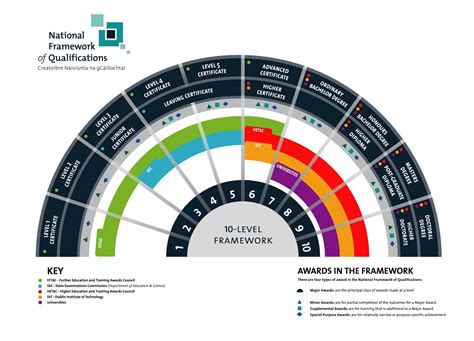Employment Requirements: Education Levels And Qualifications

When it comes to finding the right candidate for a job, employers often have specific requirements for education and qualifications. These requirements can vary greatly depending on the industry and the position. In this article, we will explore the various education levels and qualifications that employers look for when hiring new employees.
Education Levels
High School Diploma
A high school diploma is a common requirement for entry-level positions in many industries. It shows that the candidate has a basic level of education and is able to complete tasks that require reading, writing, and basic math skills.
Some examples of jobs that require a high school diploma include:
- Retail sales associate
- Receptionist
- Food service worker
- Warehouse worker
Associate’s Degree
An associate’s degree is a two-year degree that is often required for positions that require a certain level of technical knowledge or specialized skills. It shows that the candidate has completed a specific program of study and has a deeper understanding of a particular subject.
Some examples of jobs that require an associate’s degree include:
- Registered nurse
- Dental hygienist
- Paralegal
- Computer support specialist
Bachelor’s Degree
A bachelor’s degree is a four-year degree that is often required for positions that require a higher level of technical knowledge or managerial skills. It shows that the candidate has completed a broad program of study and has a deeper understanding of a particular subject.
Some examples of jobs that require a bachelor’s degree include:
- Software developer
- Accountant
- Marketing manager
- Human resources manager
Master’s Degree
A master’s degree is an advanced degree that is often required for positions that require a high level of expertise in a particular field. It shows that the candidate has completed a rigorous program of study and has a deep understanding of a particular subject.
Some examples of jobs that require a master’s degree include:
- Physician
- Lawyer
- Psychologist
- Economist
Qualifications
Certifications
Certifications are specialized credentials that demonstrate a candidate’s knowledge and skills in a particular area. They are often required for positions in industries such as healthcare, technology, and finance.
Some examples of certifications include:
- Certified Public Accountant (CPA)
- Project Management Professional (PMP)
- Certified Nursing Assistant (CNA)
- Certified Information Systems Security Professional (CISSP)
Licenses
Licenses are required for certain professions to ensure that the candidate has the necessary knowledge and skills to perform the job safely and effectively. They are often required for positions in industries such as healthcare, education, and transportation.
Some examples of licenses include:
- Registered Nurse (RN)
- Teacher
- Commercial Driver’s License (CDL)
- Real Estate Agent
Experience
Experience is often a requirement for positions that require a certain level of expertise or a specific skill set. It shows that the candidate has a proven track record of success in a particular field or industry.
Some examples of jobs that require experience include:
- Project Manager
- Sales Manager
- Executive Chef
- Marketing Director
Soft Skills
Soft skills are personal attributes that enable someone to interact effectively and harmoniously with other people. They are often required for positions that involve teamwork, customer service, or leadership.
Some examples of soft skills include:
- Communication
- Teamwork
- Problem-solving
- Leadership
Conclusion
Education levels and qualifications are important factors that employers consider when hiring new employees. Depending on the industry and the position, employers may require a high school diploma, an associate’s degree, a bachelor’s degree, or a master’s degree. In addition, certifications, licenses, experience, and soft skills may also be required. By understanding the education levels and qualifications that are required for a particular job, job seekers can better prepare themselves for the job market and increase their chances of success.
FAQs
What if I don’t meet the education requirements for a job?
If you don’t meet the education requirements for a job, you may still be able to apply for the position if you have relevant experience or skills. However, keep in mind that the education requirements are often used as a way to screen candidates, so it may be more difficult to get an interview if you don’t meet the requirements.
Can I substitute experience for education?
Depending on the position and the employer, it may be possible to substitute experience for education. However, keep in mind that the education requirements are often used as a way to screen candidates, so it may be more difficult to get an interview if you don’t meet the requirements.
How important are certifications and licenses?
Certifications and licenses are important in certain industries, such as healthcare, technology, and finance, where they demonstrate a candidate’s knowledge and skills in a particular area. However, they may be less important in other industries where experience and soft skills are valued more highly.
What are some examples of soft skills?
Examples of soft skills include communication, teamwork, problem-solving, and leadership. These skills are important in many industries and can help candidates stand out from other applicants.
